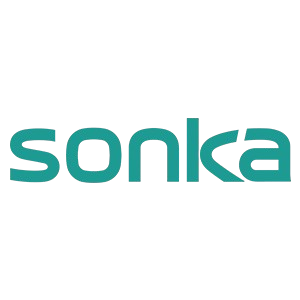Health checkup kiosks play a pivotal role in streamlining registration processes and reducing wait times, which significantly enhance patient satisfaction. By allowing patients to self-register, these kiosks eliminate the need for long queues, thus minimizing the time spent waiting for appointments. As clinics automate the registration process, they can accommodate a higher volume of patients more efficiently, resulting in improved patient flow. Research has found that health facilities utilizing kiosks experience up to a 30% reduction in patient wait times. This efficiency not only increases patient satisfaction but also optimizes staff allocation resources.
Kiosks are equipped with advanced technology that ensures data accuracy by minimizing human error during the entry process. This automation improves the precision of patient information, contributing to more effective and reliable healthcare delivery. Additionally, these kiosks are designed with integrated privacy features that adhere to HIPAA regulations, safeguarding sensitive patient data. Studies show that clinics implementing kiosk systems witness a noticeable decrease in data discrepancies. This boost in data integrity fosters trust between healthcare providers and patients, strengthening the patient-provider relationship.
Another key benefit of health checkup kiosks is their ability to offer 24/7 accessibility for pre-screening and triage, which is essential for early intervention. This round-the-clock availability enables patients to perform health assessments at their convenience, reducing the workload on healthcare staff and resources during peak times. Various health organizations indicate that providing continuous access to kiosks promotes early detection of potential health issues, leading to improved patient outcomes. By facilitating timely triage assessments, these kiosks contribute substantially to the overall efficiency and effectiveness of healthcare services.
Modern health kiosks are at the forefront of technological innovation, equipped with vital signs monitors that track essential health metrics such as blood pressure, heart rate, and body temperature. These integrations not only provide instant feedback but also allow for quick assessments and timely interventions, enhancing patient care significantly. For instance, healthcare facilities implementing these monitoring systems have reported improved patient outcomes and more efficient clinical workflows. By adopting such advanced technology, clinics can ensure they provide high-quality, proactive care, thus elevating the overall healthcare experience.
Body composition analysis has become an integral feature of modern kiosks, offering detailed insights into a patient's health, including BMI and muscle mass data. This vital information aids in personalized health management and can significantly influence treatment plans. As the use of body composition analyzers becomes more prevalent, it becomes a standard practice in preventive healthcare. This shift is crucial in addressing various chronic health issues early, allowing for interventions that can prevent further complications. The ability to obtain such detailed data points within a kiosk setting marks a significant step forward in healthcare technology, promoting a more proactive approach to health management.
The integration of telehealth features into kiosks marks a transformative step in making healthcare more accessible. These advanced kiosks enable remote consultations, allowing patients to access healthcare services from anywhere and reducing the need for in-patient visits. This flexibility is particularly beneficial for individuals unable to visit healthcare facilities, ensuring they still receive the care they need. Furthermore, research underscores that integrating telehealth services within kiosks leads to increased patient engagement and satisfaction, as patients appreciate the convenience and efficiency of remote healthcare management. These technological advancements in kiosks are reshaping the landscape of healthcare delivery, ensuring patients have constant and easy access to care.
Automating routine health measurements with kiosks significantly reduces the workload on clinical staff and enhances operational efficiency. By streamlining tasks such as BMI and blood pressure checks, medical teams can focus more on patient care rather than administrative duties. For instance, clinics utilizing automated measurement kiosks have reported a 40% improvement in workflow efficiency, enabling healthcare providers to allocate their resources more effectively and improve overall patient outcomes.
Health checkup kiosks alleviate much of the administrative work typically associated with patient intake, freeing up staff to attend to more critical tasks. This reduction in the administrative burden not only leads to lower healthcare costs but also allows for a better allocation of human resources. In fact, surveys indicate that healthcare facilities employing kiosks have experienced a 25% reduction in clerical errors and associated costs, demonstrating the effectiveness of this technology in improving operational efficiency and accuracy.
Kiosk technology facilitates the direct integration of data into Electronic Health Records (EHR), providing real-time updates that are crucial for informed decision-making in healthcare settings. With instant access to accurate patient data, healthcare providers can enhance diagnosis speed and develop more effective patient management strategies. Studies have shown that real-time integration can significantly improve the quality of care, as it ensures that clinicians are always working with the most current information available for their patients.
SONKA's pre-work health screening kiosks are designed to bolster workplace safety with integrated alcohol testing capabilities. These kiosks offer a convenient, non-invasive method for assessing employees' readiness to work, thus mitigating potential health and safety risks. By facilitating a streamlined and efficient screening process, these kiosks help maintain compliance with health regulations and promote a healthier work environment. Reports indicate that effective alcohol screening programs can reduce workplace accidents by as much as 20%.
The X60HD Multi-Parameter Diagnostic Station exemplifies high technology in healthcare, offering comprehensive health evaluations in a single station. This advanced system improves data collection accuracy, enabling healthcare providers to make informed decisions swiftly. By consolidating various health diagnostics into one platform, facilities experience enhanced patient throughput and streamlined operations. Studies highlight a 30% increase in diagnostic accuracy when using multiparameter diagnostic stations, showcasing their effectiveness in delivering precision healthcare solutions.
SONKA's smart telemedicine kiosks are revolutionizing chronic disease management by offering patients ongoing monitoring and support. By integrating patient data seamlessly, these kiosks empower healthcare providers to perform timely interventions, thus enhancing patient care outcomes. Evidence suggests a significant improvement in health outcomes and care adherence among chronic disease patients utilizing telemedicine kiosks. This technology not only makes healthcare more accessible but also more efficient and patient-focused, ensuring timely and effective treatment.
SONKA's maternity-specific health monitoring system is meticulously crafted to support both mothers and infants during the critical stages of pregnancy. This specialized system empowers expectant mothers with vital health insights, while allowing healthcare providers to effectively monitor and manage progress. With advanced tracking features, it enhances health outcomes and safety for both mother and child during pregnancy. Statistics support that such specialized monitoring systems contribute significantly to better maternal health outcomes and pregnancy safety.
The all-in-one hospital-grade checkup terminal by SONKA integrates multiple health assessment tools in one compact device, optimizing the patient evaluation process. This comprehensive terminal enhances accessibility and user experience, providing efficient and thorough health checkups. Studies show that using these all-in-one terminals significantly improves patient throughput and overall operational efficiency. By consolidating various diagnostic tools, SONKA provides a solution that is adaptable and beneficial for modern healthcare environments.
Emerging AI tools promise to revolutionize symptom assessment in healthcare kiosks, offering patients instant feedback on potential health conditions. These sophisticated algorithms are set to enhance patient triage processes by accurately directing individuals to the most appropriate care pathways. Research predicts that the deployment of AI-driven systems could lead to a 40% reduction in misdiagnosis rates, significantly improving patient care and outcomes. As these technologies become more common, we can expect to see faster, more efficient diagnoses and reduced wait times in healthcare facilities.
Healthcare kiosks are increasingly integrating mobile technology alongside biometric authentication to facilitate seamless patient access. These technological advancements not only bolster security but also enrich the user experience during the registration process. Data indicates that medical facilities employing mobile integration systems may witness a 25% increase in patient registration rates. By streamlining the initial contact and making it more secure, these innovative solutions could redefine patient intake processes, driving both efficiency and satisfaction.
There is a notable trend toward expanding health checkup kiosks into rural healthcare settings, where medical services are scarce. Additionally, corporate wellness programs are adopting these kiosks to promote preventive health measures and streamline employee health assessments. Statistics suggest that increasing the presence of kiosks in both rural and corporate environments significantly enhances overall health outcomes. By making healthcare more accessible and encouraging preventive care, these kiosks play a vital role in improving public health across diverse communities.


Copyright © 2025 by Shenzhen Sonka Medical Technology Co., Limited - Privacy policy